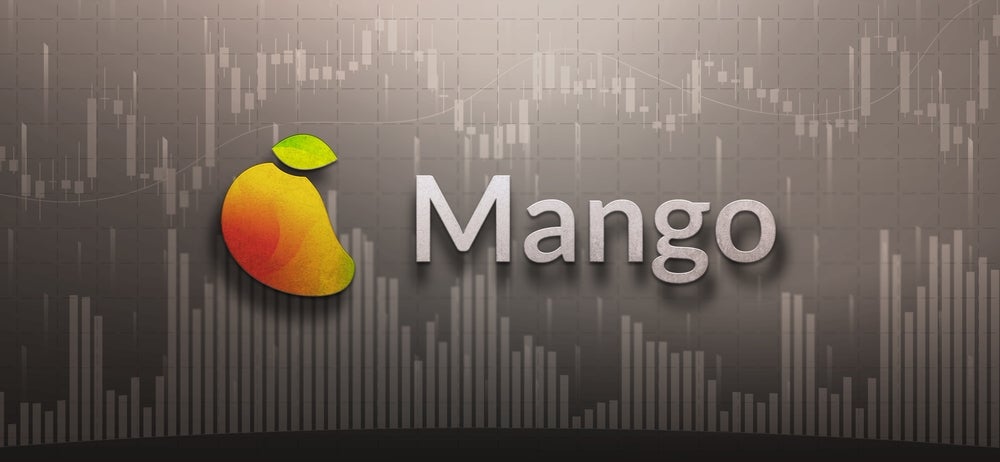
The crypto community is ridiculing the man who drained $110m from decentralised finance (DeFi) trading platform Mango Markets in October after he was arrested in Puerto Rico.
The suspect, Avraham Eisenberg, claimed all his actions were “legal” in a Twitter thread following the attack.
However, the FBI doesn’t seem to agree. In unsealed court documents, a special agent involved in the investigation accused Eisenberg of having committed commodities fraud and commodities manipulation. The complaint was filed in the Southern District of New York and was unsealed on Tuesday December 27.
“Eisenberg engaged in a scheme involving the intentional and artificial manipulation of the price of perpetual futures contracts on a cryptocurrency exchange called Mango Markets, and other manipulative and deceptive devices and contrivances,” special agent Brandon Racz wrote in the court document.
Eisenberg was arrested on Monday. He has admitted to his role in the October incident and could potentially become the first US resident to face charges for his role in manipulating a DeFi platform, CoinDesk reported.
What led to the arrest of the Mango Markets manipulator?
According to the court documents, Eisenberg manipulated the price of perpetuals contracts for Mango Markets’ native token MNGO. Perpetuals contracts are a type of popular contracts in crypto markets. Investors buying these contracts don’t trade cryptocurrencies, but buy or sell exposure to future movements in the value of that cryptocurrency relative to another digital currency.
Once Eisenberg bought those contracts, he pumped up the price of them by around 1,300% by selling them to himself on a separate account. He then presumably borrowed against the value of his position and withdrew “essentially all of the crypotcurrency deposits on the Mango Markets platform,” the complaint alleged.
The price of MNGO perpetuals tanked after Eisenberg “ceased manipulating the price”. As a result of the accused’s alleged actions, other investors “with deposits on Mango Markets lost much, or all, of those deposits.”
In the wake of the trade Eisenberg negotiated with Mango Markets and agreed to return $67m to the decentralised autonomous organisation (DAO) governing it, Reuters reported. Mango DAO planned to return those funds to users impacted by Eisenberg’s attack. The Mango Markets community voted in October to let Eisenberg keep $47m as a bug bounty.
Racz’s case hinges on the assumption that virtual currencies should be seen as commodities under the Commodity Exchange Act and that perpetual contracts should thus be seen as so-called swaps under the same law.
Not everyone agrees about that definition. Two US regulators, the Commodity Futures Trading Commission (CFTC) and the Securities and Exchange Commission (SEC), have respectively made the case that digital assets should be seen as commodities and securities.
If cryptocurrencies are seen as commodities, then they would fall under the purview of the CFTC. If they’re deemed to be securities, then it would be up to the SEC to police them.
Eisenberg mocked by crypto community following his arrest
Eisenberg’s may have been confident that all of his actions in what he called a “highly profitable trading strategy” were legal, but crypto watchers already suggested back in October that he may have made himself guilty of a crime.
Following Eisenberg’s arrest, the crypto community has echoed those sentiments and been quick to ridicule him. Members of Mango Markets’ Discord server have been busy posting memes about the arrest.
One meme, for instance, consisted of a picture of American diplomat Paul Bremer during a 2003 press conference where he announced the capture of Iraqi dictator Saddam Hussein with he words “ladies and gentlemen, we got him.” The meme shared on the server had superimposed the Mango Markets logo on the people in the picture, but left the phrase “ladies and gentlemen, we got him” unchanged.
On Reddit, the news about Eisenberg’s arrest was met with similar glee, with users noting that this “is the dude who bragged about it on Twitter too.”
Others argued about whether the actions of Eisenberg should be considered a crime given the decentralised nature of crypto is supposed to mean it is operating outside of the restrictions of regulators and central banks.
Referencing the popular video game Bioshock where a wealthy industry magnate establishes an Ayn Rand-like utopia that is then taken down by a workers’ uprising, one user said the crypto comment should not involve the government, but take down the bad eggs themselves.
“I don’t see anything to celebrate or gloat about when the law is only protecting the pyramid schemes from hackers but not us from the ponzis,” the user said. “If the guy bragged about it – got bless him – code is law!”
Crypto industry going into 2023 on rocky foundation
The arrest of Eisenberg is the latest in a string of scandals that have rocked the crypto markets this year.
First the price of digital assets such as bitcoin and ethereum collapsed at the beginning of the year, then there was a string of businesses imploding across the world.
The fact that seemingly stable crypto companies like Celsius, BlockFi and FTX imploded in 2022 has also shaken the crypto community’s confidence as it heads into 2023.
Unsurprisingly, the public collapses have triggered renewed calls for tougher policing of the crypto industry, building on the regulation already in place.
Investment into blockchain-based businesses dried up in 2022, with capital raises into the industry mirroring the price of cryptocurrencies.
In 2021, investors injected over $52.1bn into the industry across 1,222 venture financing, equity offering, private equity and debt offering deals, according to research and analytics firm GlobalData. The data was extracted on December 16.
The figures of 2022 are more solemn. The industry has secured $23.6bn this year across 1,306 deals
GlobalData is the parent company of Verdict and its sister publications.







